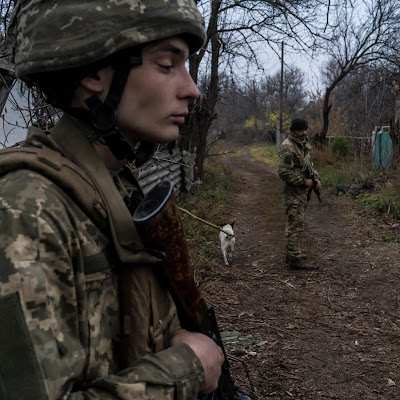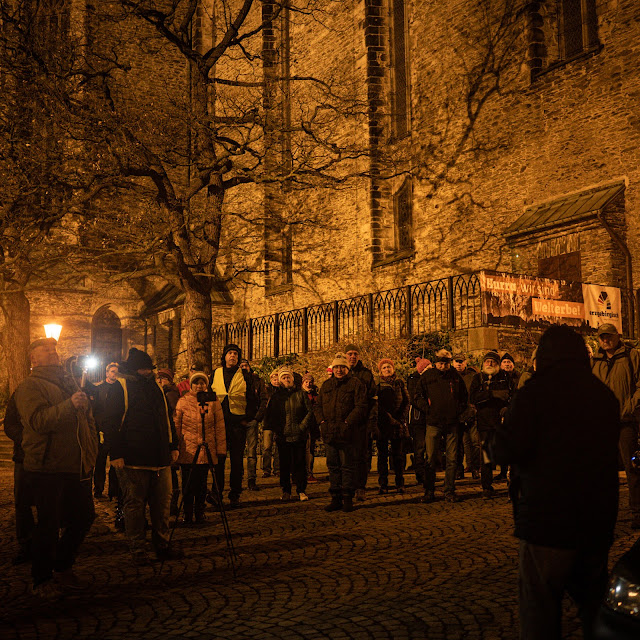Mid-November International News At A Glance: Have Democracies Across the Globe Halved Down From Full Diameter to Trifling Traces?
 |
| Artillery strike in Ukraine |
Russia
can stand without a democracy. Russia
and its post-Soviet republics show capitalism by the form of its working market
economy. So is Ukraine. But not quite. Ukraine has a presidential system with direct
election like Russia. And presidential
systems bare greater democracy. So why are
Russian backed separatists firing shells onto a small towns like a locale in eastern
Ukraine?
New
York Time’s Ukraine Fight Over Groceries Ignites
a Battle uncovers the buffer zone between the separatists and Ukrainian
government forces. Minor hostilities aggravates
onto full-fledged battles hoisting up to a cease-fire along the 279-mile front
in Ukraine War. Russia armored vehicles
amassed close to the Ukrainian border peering out at a flash point with an august
drone strike for Kremlin.
“We will never allow our historical territories
and people close to us living there to be used against Russia,” Putin lays his fine
principles onto legible form. Putin makes
it a point to persist Ukraine’s inseparable standing from Russia.
Hranitne’s
buffer zone widens up a few more miles than a few hundred’s yards norm that scrapes
along the two trench lines. Two armies shore
up on the dividing line in this gray zone.
But as the glorious Hranitene hostilities
subsided, the remitted villagers collected their groceries.
Russia’s
standing as an emerging democracy heed with destabilizing political price such
as above. Newly emerged democracies are
inundated with unstable political impetus where conflicts easily arise in the contingent
zones. Russia covers a series of
unstable coalition government in which newly enforced law changes washed out flocks of other smaller parties.
Price & Forfeit
for Refugees and Other Migrants: Aiming For Our Ideals
vs Preserving The Public Treasury and Culture
 |
| Belarus clears migrants near the Polish border. |
Not
far away in a tenuous tract, Russia’s neighboring country Poland has grave sites
to take in for viewers. By this grim sight,
I refer to the thousands of migrants crossing the Polish border drenched in a sea
of Polish officials’ shooting, freezing water.
So I beg for your opinion: What
criteria should a democracy set to decree a warrant for refugees that seek
asylum into their bounds? The migrants nudged and wedged
through razor wires while the Polish officials atomized them with water cannons
in the wasteland clogged up with wastes, deserted tents, and smoldered fires.
Most Americans picture Serbs, Croats, or Muslims that seek asylum into a Western democracy. Historically, the tumultuous tide in human crossing borders has roots to escape war, drought, and economic misery. Refugees from less developed countries seek a better course of life in democracies. You may recall ethnic cleansing in Bosnia to war in Yugoslavia or retrace ethnic conflict in African Burundi that parallel influx of hordes of migrants crossing borders.
The
standard of seeking asylum has been raised to a plane that impels people to flee
for fear of persecution based on race, religion, nationality, or membership in
social or political groups. Once you
meet this requisite, the nation will then check its own economic footing. How is their unemployment rate? How good are their social welfare programs? Firstly, asylum seekers have to testify their
imminent sense of persecution. But not
all asylum seekers will be accepted for entry.
United States, for example, admitted only 2% of Haitians that fled based
on its non-communist regime. Secondly,
the nation considers its graven ideals vs
economic growth. Can the nation afford
to consider humanitarian aid or bid against surging migrants based on its
economic difficulties? The two contending
priorities are up for debate: open
society vs protecting
self-interests. But the general occasions
for people fleeing their countries are homogenously major: political instability, ethnic conflicts, and
civil wars.
 |
| Migrants find a warm shelter at a warehouse. |
The influx of newcomers strikes a nerve on taxpayers. Economist’s finding pinpoint U.S. government’s shelling out $18 billion in California, for example, for 7.2 million immigrants that the state allowed for entry. Limited resources levy on the natives’ pockets by taxing costs for education, health care, and imprisoning illegals. Proponents who advocate curbing migrants gripe at the state’s draining public treasury. And so the states pare down on its services.
Admitting
foreigners ensue pitfalls such as overcrowding, environmental deterioration, pressure
on resources, energy use, traffic, fertile farmland used for housing, and
unemployment. Loads of people pan out to
slews of drinking water. Costly services
for running foreigners clamp down on the annual social welfare price. United States, for example, sum up costs of $1,585
per immigrant. They bear taxes paid by
these immigrants and subtract the value of benefits received. Refugees eke out $7,000 per year in social
services. For every 100 undocumented
workers in the U.S., for example, 65 U.S. workers stay displaced or rest unemployed. And up to a billion dollars are splurged on
medical services for illegals totaling up to more than a billion dollars to educate
the illegals. Concerned citizens who worry about their own economic situation confine
their borders on foreigners. In short, holding
back on their nation’s borders has increasingly become an occurring trend
across the globe.
Help
fleeing refugees find UN-sponsored settlements across the globe. Inflow of migrants into states that vouch for
them serves as their house. Refugees
have surged in numbers ten-times fold in the last few decades. United Nations has found 2.8 million worldwide
refugees in 1976 in which the numbers have soared to more than 18 million by the
1990s. And in United States, you can
visit Dade County in Miami, Florida to see the multicultural mosaic built by immigrants
and refugees that rushed in hosts from the Caribbean, Latin Americas —home to Columbians,
Nicaraguans, Central and South Americans.
 |
| Europe's Covid Culture Conflict |
The
westerly wind drifts towards developed European nations like Germany, Austria,
Italy, and Switzerland where stricter measures have bridled on the ways of unvaccinated
lives. Coercive measures enforced on the
Western European front by a mix of mandates, inducements, and punishments. President Emmanuel Macron of France blazed impending
vaccine passports mandate for coming into social venues across the country. Prime Minister Mario Draghi of Italy pursued an
even tougher measure. Spain’s populist
parties stoke an anti-vaccine backlash. Regional
resistance against the coronavirus vaccine withstands. So when Mr. Sven Muller, a proudly
unvaccinated bar owner in the town of Annaberg-Bucholz in Saxony lays bare a sign
that “No matter whether (un) vaccinated, (un) tested, you are welcome as a
HUMAN BEING,” has Mr. Muller exercised his civil liberty as a democratic member
or testified an unruly protest against a health mandate that which protects its
citizens? Either way, he has every right
to do so.
Shape,
order, and modify: These are the institution’s
control on the single choices we make at every election. Across these cluster of countries contiguous on
the North Sea, electoral systems, party organizations, and communication
structures inflect subtle tones. Elections
are a rough guideline to government’s room for authority. They offer officials’ governing fashion. Elections held are also key in grasping democracy. Restricted freedom of press, limited
participation, and severely constrained choice raise doubts or issues on the sound logic of their democracy.
Germany
is a coalition government stable on two party coalitions. A survey of Germany unveils a non-preferential
system that forbid choices for voters and the candidates’ rank order list fixed
by party organizations with a fixed order of tasks. Portugal and Spain also fall under this closed
system. On the other hand, Finland, Switzerland,
and Luxemberg fall under preferential (open) system which let voters sway on
the candidates within the party list to get elected. German, Swedish, or Polish mass-branch parties
account for positive discrimination quotas somberly where decisions by
different bodies in the organizations are matched. By these set quotas, mandatory group quotas are
joined by internal party bodies up to 20, 40, or 50 percent. Switzerland lets voters do a range of activities — vote for an
unwavering party list, strike out some names on the list, vote twice for
others, and replace with names from another list. France has a form of cohabiting way in which
the president and prime minister governs on opposing parties. So why are these Western European democracies
casting aside the unvaccinated under tough, new rules that shut out a particular
group —unvaccinated—from entering shops, cinema, and restaurants?
France and Austria are embedded democracies imbued with weaker presidential system but the pair of states are not pardoned from slashing out of their democratic system. Italy’s frequent shifts in coalitions yielded unstable, short-lived administrations. Italy’s postwar era has undergone greater than 54 governments. Germany and Switzerland testify to a far greater as a stable government. Despite all the states of Western Europe’s pitfalls, most of these nations yield higher than average turnouts at free elections in the lower house for the previous three decades than U.S. Austria, Italy, and Luxemberg, for example, hold higher than 90 turnout ratings. Germany owns 86 rating. U.S., Switzerland, and Poland occupy less than 60. On the whole, western democracies testify to strong voter turnouts at free elections.
You
might quibble that we have circuited back to the old days when the NAACP fought
to cross the limits in “separate but equal,” public facilities at schools. Revert back to the bygone days when Brown vs. Board of Education declared
racial segregation in public schools' upholding as unconstitutional. Separate educational facilities were again defied
in Plessy vs. Ferguson and the Court
declared “separate but equal” devoid at public facilities. NAACP filed for desegregation at school
districts where the Blacks crossed the bounds to use public facilities. Today, it is not Blacks but the unvaccinated like
small bar owner Mr. Muller tht face “separate but unequal” setbacks.
While
the Civil Rights Act of 1964 outlawed segregation in niches of the South’s public
and commercial locales, we still stand racially inflected division of classes and
other ways of discriminatory practices.
Mr. Sven Muller of Saxony may feel like he lives not in a “free” country
like U.S. and most Western European countries.
But he feels rather like he subsists in “partly free,” or “not free” realms.
If
you live in a “free” country, you take part in free elections in which its people
have freedom of expression, assembly, religions, and association. The least free countries have virtually no
political rights. On the contrary, people
fear expressing their views that are different from the states. U.S. and most Western European countries, for
example, score 1 to .95 on Freedom House’s (US human rights centre) the Human Development
Index. Brazil and Libya score .75. Peru scores .65. China, Iran, Iraq, Turkey, and Saudi Arabia score
lower at .55. More or less, some of these
South America’s and Middle East’s political and civil liberties have been mitigated.
Learn
by heart the following Universal Declaration of Human Rights which states as follows: “Everyone has the right to life, liberty, and
security of person . . . the right to freedom of thought, conscience, and
religion . . . the right to freedom of opinion and expression . . . the right
to seek, receive, and impart information and ideas through any media and
regardless of frontiers.” So let us not
relapse to the years of pre-Soviet collapse in which communist and socialist
publics governed its people.


Comments
Post a Comment